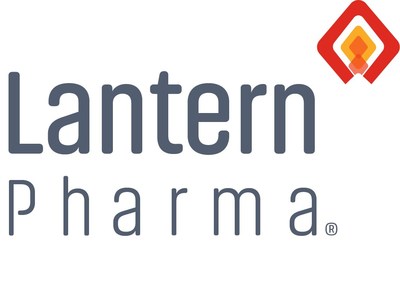Lantern Pharma Expands Precision Oncology Collaboration with the National Cancer Institute - Accelerating Path to First in Human Clinical Trials for Drug Candidates LP-184 & LP-284
Rhea-AI Summary
Lantern Pharma (LTRN) has expanded its collaboration with the National Cancer Institute (NCI) to enhance the development of its oncology drug candidates, LP-184 and LP-284. This partnership aims to leverage multiomic data to identify gene signatures predicting tumor responses. LP-184 is targeting pancreatic cancer and glioblastoma, while LP-284 focuses on leukemias and lymphomas. Initial results suggest LP-184 may be more effective in tumors resistant to current treatments. The partnership will continue to refine predictive biomarkers and advance clinical trials, with results expected to be published in peer-reviewed journals.
Positive
- Expanded collaboration with NCI enhances drug development for LP-184 and LP-284.
- Identified gene signatures predicting patient tumor responses, potentially improving treatment outcomes.
- LP-184 shows promise in overcoming resistance in tumors, supported by initial data.
- Potential for further biopharma collaboration and partnership opportunities.
Negative
- None.
News Market Reaction 1 Alert
On the day this news was published, LTRN gained 9.02%, reflecting a notable positive market reaction.
Data tracked by StockTitan Argus on the day of publication.
DALLAS, Jan. 12, 2022 /PRNewswire/ -- Lantern Pharma (NASDAQ: LTRN), a clinical stage biopharmaceutical company using its proprietary RADR® artificial intelligence ("A.I.") platform to transform the cost, pace, and timeline of oncology drug discovery and development, today announced it has expanded its collaboration agreement with the Developmental Therapeutics Branch (DTB) of the National Cancer Institute (NCI) of the National Institutes of Health. The expansion of this collaboration comes after identifying several gene signatures that predict a potential response of a patient's tumor to Lantern's drug candidates, LP-184 and LP-284. LP-184 is being pursued as a new therapy across a range of genetically defined solid tumors, including pancreatic cancer and GBM (Glioblastoma Multiforme). LP-184 was presented as a novel agent effective in GBM at SNO (Society of Neuro-Oncology) in November of 2021. LP-284 is being developed as a new therapy for certain leukemias and lymphomas as presented for the first time in December at the 2021 ASH Annual Meeting.
"This expanded collaboration with the NCI is further evidence of the power of combining multiomic data with our A.I. platform, RADR®, to accelerate the cost-effective and biomarker guided development of targeted oncology therapies," stated Dr. Kishor Bhatia, Chief Scientific Officer of Lantern Pharma. "We look forward to publishing our first in human Phase 1 results in peer-reviewed publications and bringing our potential cancer therapies to patients through the power of A.I. and data."
The first phase of the collaboration with the DTB Genomics and Pharmacology Facility at NCI successfully identified biomarker correlations from multiomic NCI datasets that will be used to guide the accelerated development of Lantern's drug candidates. The biomarker correlations are being used for LP-184 and LP-284 to: 1) uncover insights into the mechanisms of action 2) develop a signature predicting the response of a tumor, 3) prioritize the sub-types of cancer most likely to respond in a manner that would improve the current standard of care and, 4) generate data and models to guide the selection of other approved drugs that can be used in combination with LP-184 and LP-284.
The second phase of the collaboration will leverage the data and functionality provided by NCI's complementary CellMiner™ and CellMinerCDB platforms to examine additional multiomic data for more accurate and powerful drug response correlation. This phase will also include data from Project Achilles at the Broad Institute, which is integrated into the CellMiner™ platform, to compare how Lantern's complete drug candidate portfolio compares with other anti-cancer drugs under specific genetic and molecular conditions. The additional data and expanded analytic toolbox, including epigenetic, proteomic and microRNA data types, will enable Lantern to further refine multiomic signatures predictive of drug efficacy into a curated list of candidate biomarkers. These biomarkers can be utilized in gene editing and CRISPR technology studies to derisk development decisions and validate additional therapeutic strategies. Lantern will be using this rigorous approach to guide future development initiatives for itself and for potential development and commercial partners.
"The data generated from this collaboration will further advance and scale the capabilities of the RADR® A.I. platform for potentially breakthrough drug discovery and development," stated Panna Sharma, CEO of Lantern Pharma. "The new data will drive insights and drug-candidate innovations and also lead to additional biopharma collaboration and partnership opportunities."
Lantern and the NCI expect to publish the research results of this collaboration in peer-reviewed journals. Early data indicates the uniqueness of the correlation of LP-184 with PTGR1 expression compared to other therapeutic agents in the database. Gene correlation comparisons between LP-184 and other DNA targeting agents support LP-184's potential as a more effective drug candidate in tumors that show resistance to other DNA targeting agents, including synthetic lethal agents.
The data types in the NCI datasets included, DNA mutation, mRNA/ miRNA expression, DNA methylation, DNA copy number and protein data. This data was then used to characterize Lantern's pipeline of drug candidate and their bioactivity profiles through NCI's CellMiner™ platform. These multiomic analyses have provided deeper insights into the mechanism of action, efficacy profile and optimal cancer indications for Lantern's pipeline of drug candidates in preclinical and clinical development. This analysis has aided in the accelerated development of the DNA damaging agents LP-184 and LP-284. Initial work helped identify several hundred genes whose transcript levels significantly correlated both positively and negatively with pan-cancer sensitivity to LP-184. Additional correlations were found for LP-284 that aided in targeting subsets of blood cancer indications. The expression of PTGR1, which was among the strongest correlations, reinforced a critical component underlying LP-184 sensitivity and was further validated in vitro and in vivo across several tumors.
Several negatively correlated genes confirmed the enhanced LP-184 sensitivity in tumors that harbor compromised DNA repair pathways. For example, the negative correlation of LP-184 sensitivity with methylation of MGMT substantiate the potential for higher sensitivity of LP-184's efficacy in MGMT methylated tumors - an important therapeutic refractory feature in glioblastomas. The availability of multiomic data such as methylation data and protein data continue to support areas of applicability of such correlations.
LP-184 is being developed for multiple targeted oncology indications. Lantern Pharma intends to further advancing LP-184 as a new, potent treatment option in genetically defined subsets of patient populations in areas of high unmet clinical need, including pancreatic cancers, GBM, and other cancers that are DNA damage repair deficient. The U.S. Food and Drug Administration (FDA) granted LP-184 Orphan Drug Designation for the treatment of pancreatic cancer and GBM and other malignant gliomas in August 2021. LP-284 is expected to be developed for multiple hematological indications, including several rare sub-types of leukemia and lymphoma.
About Lantern Pharma
Lantern Pharma (LTRN) is a clinical-stage oncology-focused biopharmaceutical company leveraging its proprietary RADR® A.I. platform and machine learning to discover biomarker signatures that identify patients most likely to respond to its pipeline of genomically targeted therapeutics. Lantern is currently developing four drug candidates and an ADC program across eight disclosed tumor targets, including two phase 2 programs. By targeting drugs to patients whose genomic profile identifies them as having the highest probability of benefiting from the drug, Lantern's approach represents the potential to deliver best-in-class outcomes. More information is available at: www.lanternpharma.com and Twitter @lanternpharma.
About RADR®
RADR® or Response Algorithm for Drug Positioning & Rescue, is Lantern's proprietary integrated A.I. platform for large-scale biomarker and drug-tumor interaction data analytics that leverages machine-learning. RADR® is used to provide mechanistic insights about drug-tumor interactions, predict the potential response of cancer types and subtypes to existing drugs and drug candidates, and uncover patient groups that may respond to potential therapies being developed by Lantern and its collaborators.
Forward-looking Statements
This press release contains forward-looking statements within the meaning of Section 27A of the Securities Act of 1933, as amended, and Section 21E of the Securities Exchange Act of 1934, as amended. These forward-looking statements include, among other things, statements relating to: future events or our future financial performance; the potential advantages of our RADR® platform in identifying drug candidates and patient populations that are likely to respond to a drug candidate; our strategic plans to advance the development of our drug candidates and antibody drug conjugate (ADC) development program; estimates regarding the development timing for our drug candidates and ADC development program; our research and development efforts of our internal drug discovery programs and the utilization of our RADR® platform to streamline the drug development process; our intention to leverage artificial intelligence, machine learning and genomic data to streamline and transform the pace, risk and cost of oncology drug discovery and development and to identify patient populations that would likely respond to a drug candidate; estimates regarding potential markets and potential market sizes; sales estimates for our drug candidates and our plans to discover and develop drug candidates and to maximize their commercial potential by advancing such drug candidates ourselves or in collaboration with others. Any statements that are not statements of historical fact (including, without limitation, statements that use words such as "anticipate," "believe," "contemplate," "could," "estimate," "expect," "intend," "seek," "may," "might," "plan," "potential," "predict," "project," "target," "objective," "aim," "upcoming," "should," "will," "would," or the negative of these words or other similar expressions) should be considered forward-looking statements. There are a number of important factors that could cause our actual results to differ materially from those indicated by the forward-looking statements, such as (i) the impact of the COVID-19 pandemic, (ii) the risk that our research and the research of our collaborators may not be successful, (iii) the risk that none of our product candidates has received FDA marketing approval, and we may not be able to successfully initiate, conduct, or conclude clinical testing for or obtain marketing approval for our product candidates, (iv) the risk that no drug product based on our proprietary RADR A.I. platform has received FDA marketing approval or otherwise been incorporated into a commercial product, and (v) those other factors set forth in the Risk Factors section in our Annual Report on Form 10-K for the year ended December 31, 2020, filed with the Securities and Exchange Commission on March 10, 2021. You may access our Annual Report on Form 10-K for the year ended December 31, 2020 under the investor SEC filings tab of our website at www.lanternpharma.com or on the SEC's website at www.sec.gov. Given these risks and uncertainties, we can give no assurances that our forward-looking statements will prove to be accurate, or that any other results or events projected or contemplated by our forward-looking statements will in fact occur, and we caution investors not to place undue reliance on these statements. All forward-looking statements in this press release represent our judgment as of the date hereof, and, except as otherwise required by law, we disclaim any obligation to update any forward-looking statements to conform the statement to actual results or changes in our expectations.
CONTACT:
IR@lanternpharma.com
1.628.777.3339
![]() View original content to download multimedia:https://www.prnewswire.com/news-releases/lantern-pharma-expands-precision-oncology-collaboration-with-the-national-cancer-institute--accelerating-path-to-first-in-human-clinical-trials-for-drug-candidates-lp-184--lp-284-301459333.html
View original content to download multimedia:https://www.prnewswire.com/news-releases/lantern-pharma-expands-precision-oncology-collaboration-with-the-national-cancer-institute--accelerating-path-to-first-in-human-clinical-trials-for-drug-candidates-lp-184--lp-284-301459333.html
SOURCE Lantern Pharma








